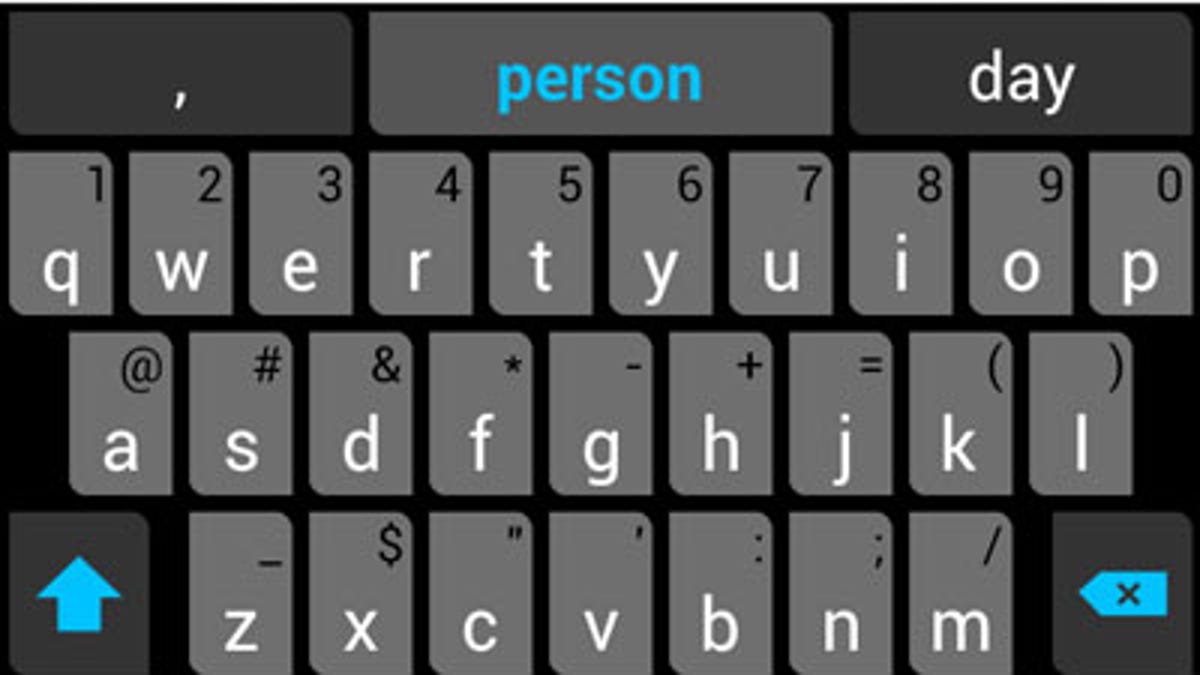For better Android typing: SwiftKey 3
SwiftKey one-ups Android's stock keyboard with more advanced prediction and correction abilities, and the new version is another step forward, CNET's Stephen Shankland concludes.

One area the iPhone has held its own against Android phones I've used is the responsiveness of the touch-screen keyboard. But one area where I think Android has shown more innovation better predictive typing. Which is why I was happy to see the release of SwiftKey 3 today.
The software one-ups the predictive typing abilities of Android's built-in keyboard, learning from your own typing to offer not just the next letters in a word, but also the next word, too. Hitting the spacebar completes the action. (When you start typing, the first word it suggests is "I," and if you keep hitting the spacebar, SwiftKey types, "I am a beautiful person.")
In a big step up from the earlier version, the spacebar is now bigger. I've been using SwiftKey for months, and the software for me has done a good job enabling a touch-typing style where I don't look at the keyboard for the most part. But I'd often get bad results with the earlier SwiftKey when I hit letters or punctuation by mistake instead of the spacebar.
Other changes in the new version include "smart space," which is designed to detect spurious or missing spaces; a flexible punctuation key that like the stock Android keyboard will present several options with a long-press; and support for Korean, Estonian, Farsi, Icelandic, Latvian, Lithuanian, and Serbian, for a total of 42 languages now.
Earlier features I like are still there: a leftward swipe deletes the last word; you can set the duration of the haptic feedback buzz (I like it short -- 10 milliseconds); and the software can learn word completion rules from text messages, Facebook, an RSS feed, Gmail, and Twitter.
I'm not sure if this is a regression, but I didn't notice the earlier version preferring "ill" to "I'll" so much; the latter is much more common in my experience, so perhaps it'll learn if I train it more. SwiftKey says its software inserts apostrophes on the basis of context, but I for one would at least like an optional "I'll" as a secondary choice. (Update: SwiftKey recommended I reload the language model, and indeed that seems to have fixed the problem.) To do that, long-press on the numbers button in the lower left to get to the Settings menu quickly, then select "Languages and layouts," then tap the menu button to reveal the option to update the language.
The new version adds the ability to select themes. None of the options are quite right for me; I like "Holo" since it makes the long-press alternative characters easier to see, but I'd prefer the autocomplete option to stand out in blue, as is the case with the "Cobalt" theme. I also enabled foreign characters so I can get accents and umlauts more easily.
For oddballs such as myself who learned to touch-type on a Dvorak keyboard layout, that's an option, too.
If you miss the old days of Android phones that had trackballs, SwiftKey offers arrow keys along the bottom to navigate precisely through text, but of course that eats up some room on the keyboard, an in my tests I sometimes moved the cursor instead of hitting the spacebar.
SwiftKey 3 is a free upgrade for those who bought it earlier, but otherwise it costs $2 during a half-price promotional period. For the same price, there's also a separate tablet version, which offers an optional split layout with a central numeric keypad for landscape mode. Both are available in a free version that expires after 30 days.
Text prediction is easier with a smaller or specialized vocabulary, and SwiftKey also announced a healthcare-oriented version that's designed for medical professionals.

